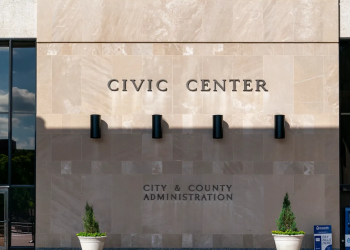EVANSVILLE, Ind. – The Indiana Utility Regulatory Commission (IURC) has officially approved a significant rate hike for CenterPoint Energy, which will increase utility bills for customers by approximately 20%. The decision, made after a unanimous vote, will see bills rise in two phases, with the first starting on March 1, 2025, and the second phase following in March 2026.
The IURC’s 206-page order outlines the reasoning behind the increase, which has been met with significant opposition from local residents and consumer advocacy groups. Kerwin Olson, executive director of the Citizens Action Coalition (CAC), criticized the commission’s decision, stating that it would disproportionately affect working-class families. “The general takeaway is customer bills are going up, they’re going up a lot and they’re going up soon,” Olson said.
Olson, who has spent nearly 20 years working with the CAC, highlighted the public outcry that occurred during hearings held last year, particularly in Evansville. He described the opposition to the rate hike as unlike anything he had seen in his two decades of experience, with many local residents voicing their concerns over the financial burden they would bear.
Many customers have expressed frustration over the rate hike, arguing that the decision comes at a time when the cost of living is already increasing. Jada Jones, a local CenterPoint customer, voiced her displeasure with the decision, stating, “I wish we had more options but we really don’t. Look at the economy. Food has gone up, gas is decent, but we don’t want to cut corners somewhere else just to pay more for energy.”
Another Evansville resident, Guy Llewellyn, who recently moved to the area, echoed similar concerns, saying, “20% would seem to me to be a bit over the top. It’s difficult, probably, for a lot of families to shoulder.”
As part of the next steps in the process, CenterPoint Energy will submit a compliance filing to the IURC, detailing specific tariffs and plans for implementing the rate increase. While Olson acknowledged that the filing would likely be approved, he also pointed out that the IURC has historically sided with utilities rather than consumers in rate hike cases. “The scales are just so unevenly tilted in Indiana right now. It’s absurd,” Olson said.
The decision has also sparked concern from local officials. Evansville Mayor Stephanie Terry released a statement on Facebook following the announcement, expressing her discontent with the outcome and the financial strain it could place on residents.
Despite the public opposition, the IURC’s decision stands, and the rate hikes are expected to be finalized soon. With energy costs already climbing, many residents are bracing for the impact, questioning how they will be able to manage the rising costs of both utilities and daily expenses. As debates continue over affordability and consumer rights, it remains to be seen how this decision will affect the political landscape in Indiana.




















































































